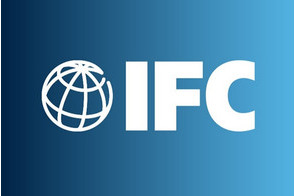Latest News
Sub-Saharan Africa has lowest 'online population' – ITU report

News Highlight
ITU said 71.8 per cent of Africa's population is without access to internet connection.
According to the UN agency, barriers to internet use include affordability and lack of digital skills.
A new report by the International Telecommunications Union (ITU) has shown that sub-Saharan Africa is the world's region with the lowest number of individuals with internet connection. The specialized agency of the United Nations said this in a report, Measuring digital development: Facts and figures 2019, the first publication in ITU's new Measuring digital development series.
The report estimates that globally, there are still 3.6 billion people (or 46.4 per cent of the world's population) without access to internet connection. ITU said internet use in developed countries is nearing saturation levels, with close to 87 per cent of individuals online. Europe is the region with the highest internet use (82.5 per cent), while Africa is the region with the lowest (28.2 per cent). Based on Africa's current population of 1.3 billion, according to Worldometers, over 933 million people (71.8 per cent) are offline.
ITU data shows that indeed internet use has continued to grow globally, with 4.1 billion people now using the internet. Between 2005 and 2019, the number of internet users grew on average by 10 per cent every year. However, majority of the unconnected individuals live in the Least Developed Countries where an average of just two out of every ten people are online.
"Connecting the 3.6 billion people still offline to the power of digital technologies must become one of our most urgent development priorities," said Doreen Bogdan-Martin, Director of ITU's Telecommunication Development Bureau. "Multi-stakeholder collaboration will be key to making universal and meaningful connectivity a reality for all. It will require targeted efforts to lower the cost of broadband and innovative policies to finance network rollout to unconnected populations."
According to the UN agency, barriers to internet use include affordability and lack of digital skills. In 40 out of 84 countries for which data are available, ITU said less than half the population has basic computer skills, such as copying a file or sending an e-mail with an attachment.
The UN agency said there is a strong and pressing need for governments to focus on measures to develop digital skills, particularly in the developing world, although more data is needed to confirm its initial findings.
.
"Even where connectivity exists, we need to be more creative in addressing critical issues like affordability of service, cost of handsets, and lack of digital skills and literacy to enable more people – and especially women – to participate and flourish in the digital economy," said Bogdan-Martin.
The report also shows that in most countries worldwide, women are still trailing men in benefiting from digital technologies. It is estimated that over half the total global female population (52 per cent) is still not using the internet, compared to 42 per cent of all men. With the exception of the Americas, where usage is near-parity, more men than women use the internet in every other region of the world.
Related News
Latest Blogs
- The Museum of West African Art saga
- The complexity and complication of Nigeria’s insecurity
- Between bold is wise and wise is bold
- Prospects of port community system in Nigeria’s maritime sector
- Constitutionalism must anchor discipline in Nigerian Armed Forces
Most Popular News
- NDIC pledges support towards financial system stability
- Artificial intelligence can help to reduce youth unemployment in Africa – ...
- Africa needs €240 billion in factoring volumes for SME-led transformation
- ChatGPT is now the most-downloaded app – report
- Green economy to surpass $7 trillion in annual value by 2030 – WEF
- CBN licences 82 bureaux de change under revised guidelines






